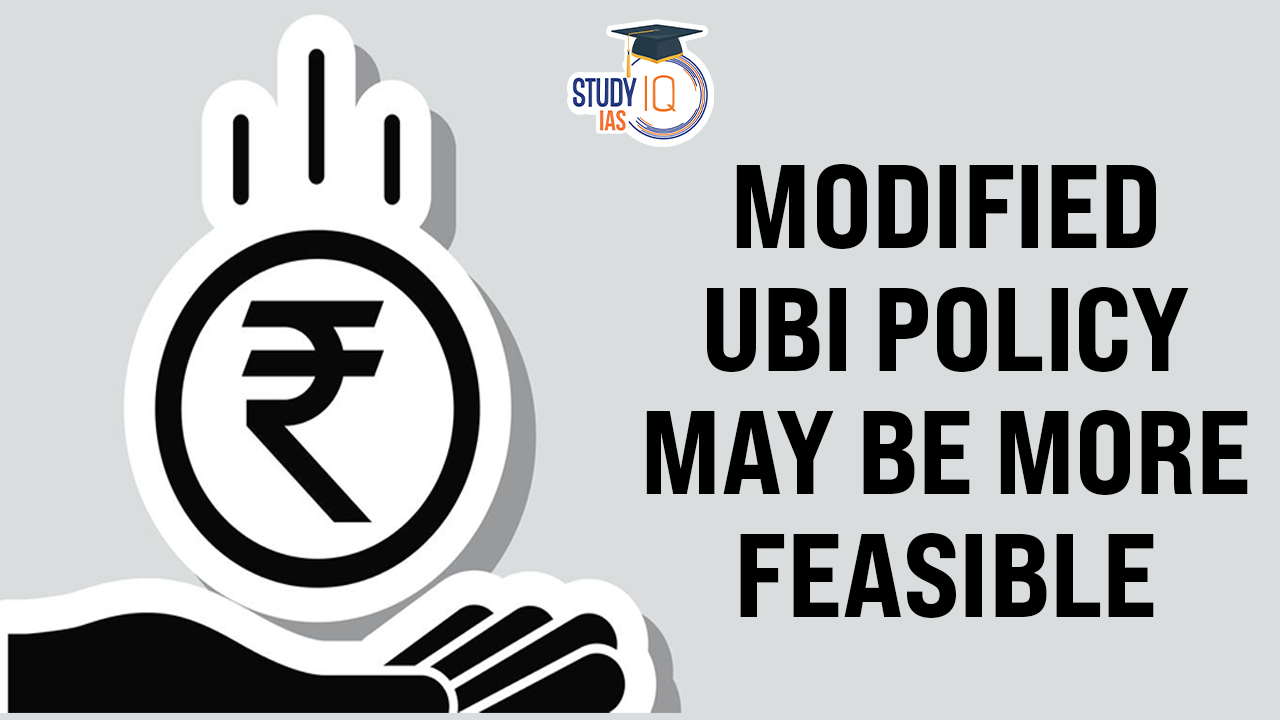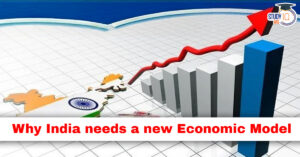Table of Contents
What is Meant by Universal Basic Income (UBI)?
- It is a form of guaranteed income where every citizen or resident of a country is provided with a fixed, unconditional amount of money on a regular basis, regardless of any other income they may earn.
- The 2016-17 Economic Survey recommended exploring UBI as a policy to replace inefficient welfare schemes.
- The report suggested the JAM (Jan-Dhan, Aadhaar, Mobile) infrastructure would enable Direct Benefit Transfers (DBTs) to beneficiary accounts.
Challenges or Criticism of UBI
- Financial Feasibility: UBI proposals often suggest transfers amounting to 5% to 11% of GDP, which is a significant burden on India’s fiscal resources.
- Implementing such large-scale schemes may require cutting other anti-poverty programs or drastically raising taxes to fund the initiative.
- Targeting vs. Universality: Critics argue that universal transfers would also go to the wealthy, who don’t need financial assistance.
- This raises concerns about the efficiency of using limited resources to provide benefits to those who are not vulnerable.
- Opportunity Costs: UBI may take away funds from more targeted programs that directly address issues like employment growth or poverty alleviation.
- Critics argue that investing in programs that create jobs or stimulate mass consumption might be a better use of resources in a developing country like India.
- Logistical and Implementation Challenges: Although India has developed JAM (Jan-Dhan, Aadhaar, Mobile) infrastructure, issues like inclusion and exclusion errors, Aadhaar verification problems, network failures, and bank rejections remain persistent challenges.
- These could hinder the smooth delivery of UBI benefits.
- Dependency and Work Disincentives: There is concern that a UBI might create a disincentive to work, particularly if people receive guaranteed income without any conditions, leading to reduced labour force participation over time.
State and Central Schemes: Precursor to UBI
- India has already implemented income transfer schemes, notably in agriculture:
- Rythu Bandhu Scheme (RBS): Launched in Telangana in 2018, provided ₹4,000 per acre to farmers.
- KALIA (Krushak Assistance for Livelihood and Income Augmentation): Odisha’s initiative for farmers.
- Pradhan Mantri Kisan Samman Nidhi Yojana (PM-KISAN): Launched in 2018-19, initially provided ₹6,000 per year to small landholding farmers and expanded to cover all farmers. The scheme aimed to reach 10 crore households by 2020-21, costing ₹75,000 crore (roughly 4% of GDP).
Modified UBI Proposals
- Limited Universal Transfers: A proposal developed by the author and economist Karthik Muralidharan suggests a modest universal income transfer of about ₹144 per month per person or ₹500 per household.
- This is pegged at 1% of GDP per capita, much more feasible than full UBI proposals requiring 3.5%-11% of GDP.
- Expand Existing Schemes: The PM-KISAN scheme provides an example of a targeted scheme that could be modified.
- By doubling its budget and making it universal, it could cover not only farmers but also landless labourers who are often poorer, thereby increasing its reach.
- Complementing Existing Programs: Instead of replacing all social welfare programs, the modified UBI can supplement existing programs like MGNREGS.
- Example: MGNREGS provides 100 days of employment, but a modified UBI could extend coverage to groups like the elderly and disabled, who are unable to work and might not benefit from employment programs.
- Cost Control through Modesty: By keeping the transfer amount modest (₹144 per person), the modified UBI ensures that the program remains financially sustainable while still providing a meaningful safety net.
- The relatively small transfer amount is significant in relation to the Tendulkar poverty line (₹1,500 per month in rural areas, ₹1,850 in urban areas).
- Reduced Administrative Costs: The universality of the scheme helps reduce targeting costs, bureaucratic delays, and errors associated with targeted programs.
- It also reduces the risk of corruption and leakages by minimising the need for intermediaries in the delivery system.
- Integration of Income and In-Kind Transfers: A modified UBI can be integrated with in-kind transfers like the Public Distribution System (PDS), ensuring a holistic safety net.
- The COVID-19 pandemic underscored the importance of both income transfers and food access, showing that they are complementary.


 Why India Needs Its Own Economic Model?
Why India Needs Its Own Economic Model?
 Challenges in India’s Airline Sector: ...
Challenges in India’s Airline Sector: ...
 Forest Conservation Act, 1980: Objective...
Forest Conservation Act, 1980: Objective...

























